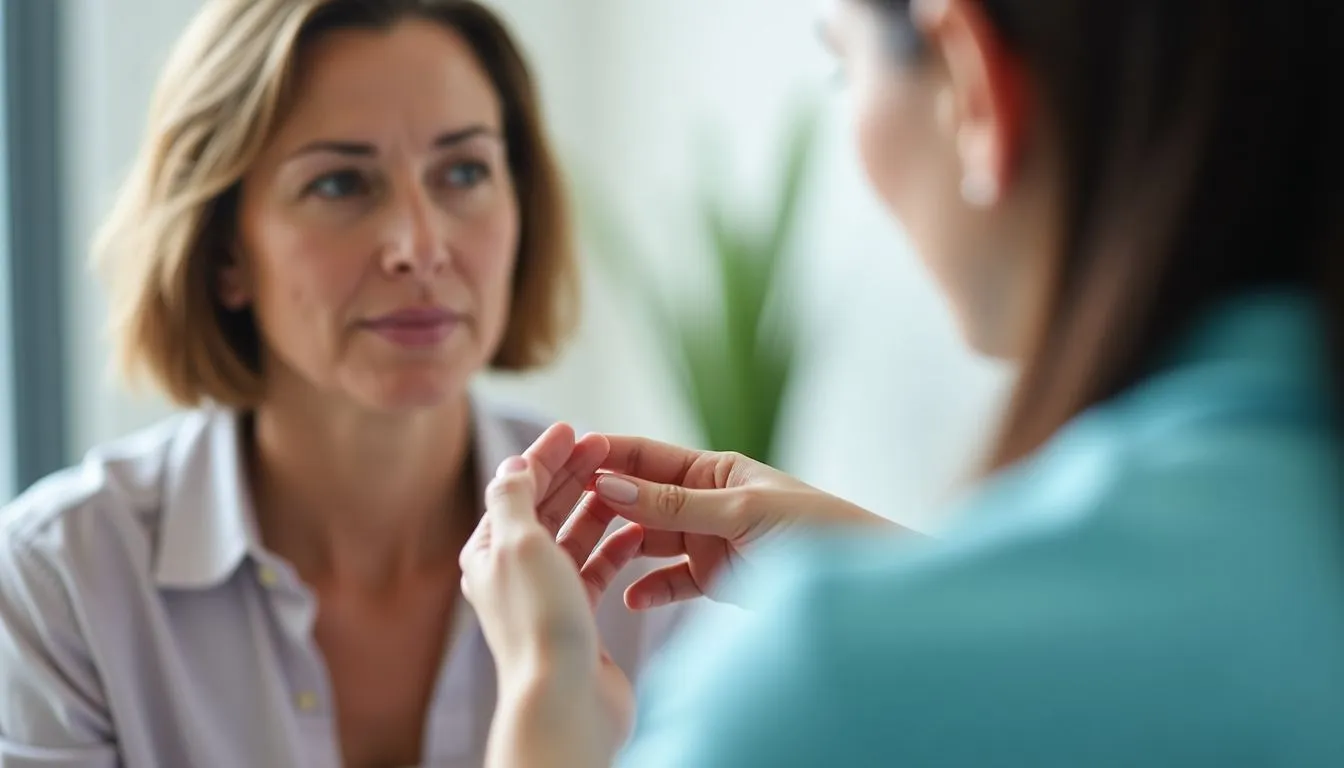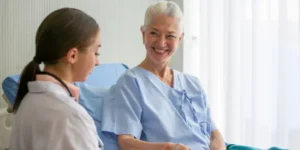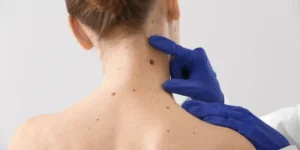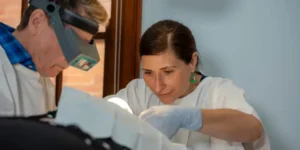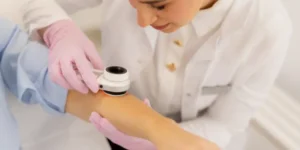Skin checks Brisbane City are essential for anyone living under the Queensland sun. With sunshine nearly all year round, Brisbane residents face some of the world’s highest UV levels-often exceeding 12 in summer, which is considered extreme. According to the Australian Cancer Council (2020), two in three Australians will develop skin cancer by age 70. Whether you’re hitting the beach or working outdoors, regular skin checks can catch early signs of trouble before they become serious.
Regular skin checks at city medical centers can save your life by finding problems early. Signs may not show until the condition worsens. Modern techniques help spot small changes.
Importance of Regular Skin Checks in Brisbane City
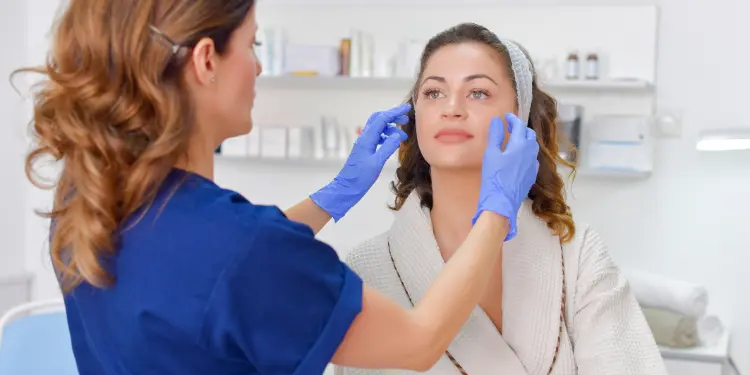
Regular skin checks in Brisbane City are vital for your health. The Queensland sun is very harsh. Locals face a high risk of skin cancer. In fact, Queensland has the highest rates of skin cancer in the world. Only 37% of Aussies aged 45–69 get whole-body skin checks.
The skin cancer doctors at Brisbane City clinics use special tools to see skin changes you might miss at home. For example, clinics like Carina Medical use dermatoscopy and biopsy protocols to spot suspicious changes. They check for odd moles, skin lesions and signs of melanoma.
These exams help stop skin cancer in its tracks.
A skin check takes just 15–30 minutes. The doctor examines your whole body, even spots you cannot see yourself. They track mole changes over time. In high-risk cases, photographic monitoring may be used to check these changes. This method helps spot early signs of skin cancer.
What to Expect During a Full Skin Check
A full skin check usually includes these steps:
- The exam starts with a complete body examination.
- Doctors use special tools to spot subtle skin lesions and changes.
- Any odd moles are carefully reviewed while tracking changes over time.
- A review of your skin health history is performed.
- Advice on skin cancer prevention and care is provided.
- Patients get tips on how to prepare. For example, shower before your appointment and avoid creams or lotions that can hide skin changes.
- For high-risk patients, doctors might use photo monitoring to track changes.
Early Detection of Skin Cancer and Its Impact
Finding skin cancer early can save your life. Skin checks spot tiny changes before they become big issues. Early diagnosis leads to simpler treatments. Early detection improves the 10-year survival rate for stage I melanoma to 95%, compared to only 15–20% for later stages.
Doctors use special tools to inspect spots that seem normal. They look deeper into the skin where problems might hide. Even thin melanomas can be dangerous if missed, which shows why timely checks are key. Early checks mean less cutting and fewer scars.
Brisbane’s sunny days make skin checks very important. The sun in Queensland beats down all year. Constant exposure puts locals at high risk for skin damage. A visit to a skin cancer clinic in Brisbane City offers useful insights into your skin health this year.
Role of Brisbane’s Climate in Skin Health Risks
Early detection saves lives. Brisbane residents need frequent checks because of the strong sun. Brisbane gets a lot of intense light. The UV index often exceeds 11+ during summer. This high UV exposure has been linked to 96% of melanomas and 99% of non-melanoma skin cancers.
An outdoor lifestyle can expose your skin to dryness. Dry conditions remove natural oils and can hide early changes. Long hours under the sun can hurt the skin. Doctors see these effects every day at clinics.
Emerging Technologies & Strategies in Skin Cancer Screening
New tech is making skin checks better. Scientists are testing AI tools to spot suspicious marks. AI systems and risk calculators help doctors check skin with more precision. These tools add a modern twist to old methods.
People also use apps to keep an eye on their moles at home. Such tools let you snap pictures and compare changes over time. This gives you extra power to watch your skin. Quick reporting of changes can lead to faster treatment.
Economic and Demographic Insights on Skin Cancer in Australia
Skin cancer has a big cost to Australia. Melanoma costs over $8.7 billion in net present value between 2023 and 2030. Treating advanced skin cancer can be very expensive. This financial strain affects both patients and the health system.
Age plays a role in check-up rates. Only about 37% of those aged 45–69 get full skin checks. Studies warn that by 2030, 205,000 Aussies could be diagnosed with melanoma if nothing changes. These figures show a clear need for better skin care and regular checks.
Conclusion
Your skin deserves careful attention. Regular skin checks at Brisbane City clinics such as Skin Cancer Hub save lives. The strong Queensland sun makes these checks critical for locals. Routine checks support better skin health and help lower the risk of advanced skin cancer.
This small step may boost your long-term well-being. The content in this article was reviewed and written by board-certified skin cancer specialists with over 15 years in skin cancer detection and diagnosis.
Further Information and Common Questions
People often ask how to prepare for a full skin check, what steps the exam includes and what follow-up actions to expect. Consider these questions:
- How should one prepare for a full skin check? For a clear view, shower and avoid lotions or makeup.
- What steps occur during the examination? The doctor checks your entire body and reviews your medical history in detail.
- What follow-up actions are advised? Your doctor may suggest mole removal or extra tests if needed.
Have you noticed any unusual changes on your skin, such as new moles or colour shifts? Monitor these changes closely. They help spot problems early.
Located centrally in Woolloongabba at 61 Ipswich Rd in Brisbane, Queensland, our brand new purpose-built clinic focuses on the detection, diagnosis and treatment of skin cancer and melanoma. The clinic is easily reached from Brisbane CBD and Queen St Mall.
At the Skin Cancer Hub, experienced doctors with extra training provide care in the prevention, diagnosis, treatment and management of skin cancer. They use modern techniques in melanoma diagnosis and skin cancer detection.
Disclosure: This content is for informational use only and does not substitute for professional medical advice. The article was reviewed by board-certified specialists with extensive experience in skin conditions and skin cancer diagnosis.
Data was gathered from trusted internet sources including the World Health Organization (2021) and the Australian Cancer Council (2020).

